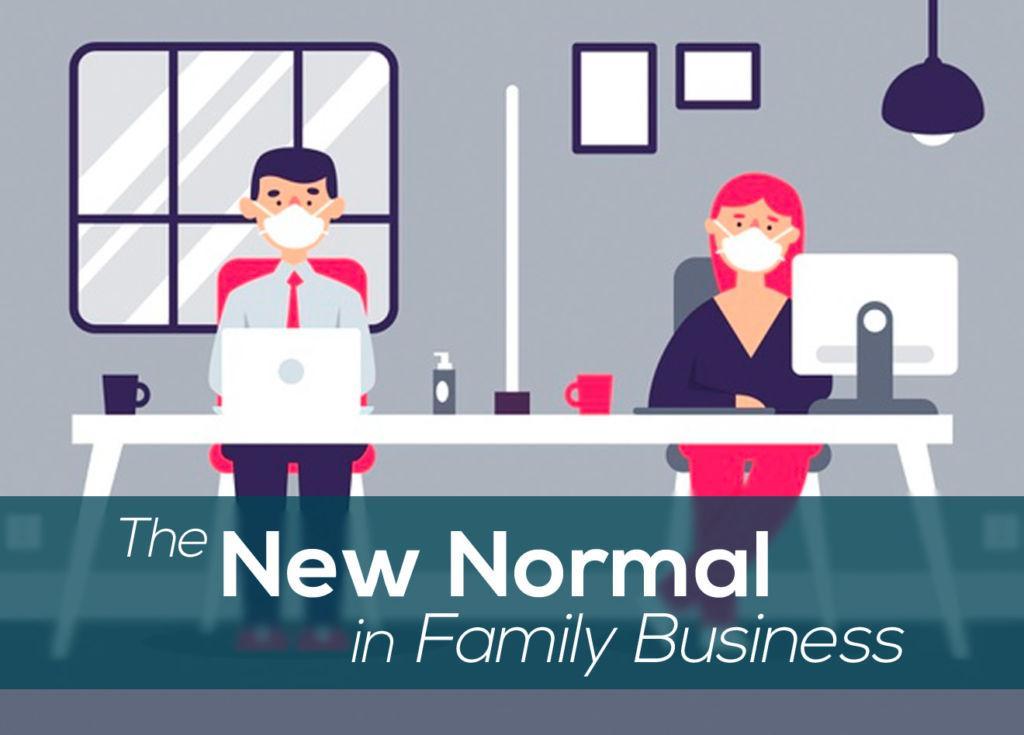
Your Family Business Practices: The New Normal
There’s talk everywhere about the New Normal. This essay is a dive into what is new, and yet maybe not so new..
To start, let’s share a brief musical bridge to prepare us for the essay. The song is Judy Garland’s “It’s a New World.” It’s from her A Star is Born album which was released in 1954. You can read the lyrics here.
I admit to hearing this song for the first time just now. Thank you YouTube for making so much accessible. Ms. Garland was singing of a new world filled with hope. She tones plaintively that this new vision will last. And, significantly, the lyrics describe an active person “polishing up the stars and moving mountains.” They tell of a person holding fast to their new vision.
Garland’s setting was in the 1950’s, post-WWII. Then, recovery was underway flush with billions of dollars spent on the Marshall Plan. Now we’re recovering from the COVID pandemic and the amounts are in trillions.
There’s nothing new in human affairs
I bring this comparison (1954 to 2020) as a reminder about “new.” There’s nothing new in human affairs. Or, as better said by King Solomon in Ecclesiastes, “What has been will be again, what has been done will be done again; there is nothing new under the sun.”
This, however, is not to say we’re wrong in all our current talk about “new.” It’s just that “new,” the word, the concept, isn’t exactly what we usually take it to be.
For this, let’s burrow into the concept of “new.” The word Solomon used for “new” was Hebrew. Hebrew words are built on roots, usually three letters. In this case the letters het (ח), dalet (ד) and shin (ש) form the word “hadash.” Hadash (חדש) is associated with the moon and with the moon’s key property of monthly renewal. For a full recounting of the use of hadash in Hebrew Scriptures, please look at the BDB Lexicon (1966, pp 293 – 5).
With this background, what King Solomon is saying is more than that there’s nothing new. In the same word, he is addressing our poor capacity at renewing and repairing what is already extant. That charge sticks. The moon renews itself monthly. We’re not so good at renewal.
We are creatures of habit
We are creatures of habit. We quickly fall into routines. It takes a huge push to break us of those habits and then we clamor for the balm of steadiness. “OK,” we say, “all this new is great. The world is different. Everything is possible.” We herald the “New Normal.”
What happens next? We find a new routine. And, soon, that new normal isn’t new anymore. It’s just the next normal. It’s just the next iteration of life going on; minus the lives and treasure being lost in the transition; plus the treasure gained for those of us who jockey best during the flux.
That’s where we are. We have daily death counts. We have demonstrations in the streets. And, we have geo-political realignments. We have bold entrepreneurship such as a private company launching NASA astronauts into space. And, we have families to take care of and we, in particular, have family businesses to lead.
As leaders of family businesses, we’re accustomed to being responsible for the livelihoods of others. They’re people we love. They’re employees and stakeholders of many kinds.
The better we get the current transition, the more we can do for those around us.
Be clear about family business values and vision
Always, but even more so in times of transition, we have to be clear about our business values and vision. These touch points keep us on track. In family business there is a delicate balance between legacy and change. The values offer continuity and provide touchstones that give us security while the vision helps us navigate the changes that we need in order to flourish in the new world.
Things we’ve just learned, we need to apply.
We say our values include taking good care of our employees. These last months have been especially challenging to that. I’ve spoken with several CEOs who were literally in tears as they closed their businesses and sent their people home.
Even among the tears, they knew that some of those people wouldn’t be coming back. Even before COVID, they knew they needed to part ways but they put it off. It was emotionally too hard and times were good enough that the money was there to pay them anyway. But, firing someone in a downturn has them looking for work when work is hard to find. It’s better to keep on top of fitness for the job. It is important that we constantly renew our employees in their skills. It keeps our business vital. It’s ultimately better for our employees, too. That’s living by our values.
It’s important that the family business’ vision is bold
We have a vision of where our business can go. It’s important that the vision is bold and suited to the times. Businesses that were leading edge technologically are having an easier time managing today’s rough waters. For example, even now online provision of psychotherapy is not legal in all jurisdictions. Further, providing service across state/country lines is generally not legal. It’s important that providers and their licensing authorities be clear on what is permissible. It is crucial to keep our skills, procedures and regulations leading edge. Waiting for a crisis and then scrambling to catch up damages clients, providers and the communities that must absorb whatever issues go untreated. Furthermore, this field is just beginning to envision the role of Artificial Intelligence in care provision. Visioning is an always thing, not a reaction to crisis.
Speaking of vision being bold, we have to voice where we want to go. President Kennedy envisioned a manned lunar mission and it happened. That was in 1969. But, it was 100 years prior that countless stakeholders came together and successfully linked East and West Coasts of the US with rail. Fifty one and 151 years later, we have to be similarly bold in our vision for our businesses. This is how our family business will have room for our grandchildren to work in them. What is our moon mission?
New Normal. It’s a tricky phrase…
If it’s new, it’s not normal so there’s really no such thing. But, it is human, so human. We can only cope with so much change at a time. We want normal. This is where good family business practices come in. We are ill prepared if our business planning is reactive. Keeping vital is about having systems in place that help us manage change. Sticking with our core values provides the integrity to sustain in difficult times.
We have to have succession on plan before, heaven forbid, the CEO passes from COVID. We have to have buy-sell agreements in place before a child marries an exploiter. Remember that there will always be things out there to keep us on our toes. However, the more rigorous we are in keeping our eyes open, the less shocking will be the next shock.
This brings us to our new Aspen Family Business Group website. Some of the content is carried over, though we’re adding new content regularly. The site will allow for new modes of interaction with our families and our colleagues. We welcome you to visit our site. We’re polishing the stars and moving mountains. Let’s do that together.

JONATHAN MAGIDOVITCH
Jonathan advises family businesses in both the US and Israel. He consults with families in business on goal setting, role development, governance, communication, transition, leadership and culture building. ( view bio )

